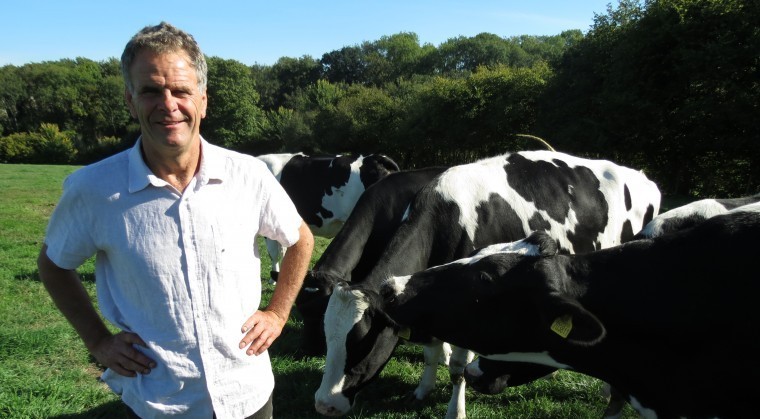Recently, Pete Caines went to a South East bovine TB advisory group meeting where he was given data which left him feeling angry.
There have recently been herd breakdowns due to bovine TB in West Sussex, a county which used to be free of the disease. “At that meeting, we were told that every single one of those breakdowns has been attributed to cattle movement,” said Peter, who runs the Caines Farm Partnership with his brother Richard near Petersfield in Hampshire.
“Those breakdowns weren’t caused by badgers – and that really made me fed up. After all, we expect the public to come on board with the badger culls which are needed in areas chronically infested with bovine TB.
“And yet at the same time, as farmers we are seen to be moving cattle from high risk areas such as the South West to low risk areas such as West Sussex. I simply cannot understand it.”
Peter’s vet is Maarten Boers, who has previously raised the issue of cattle movements from the high to the low risk areas in South East Farmer – and joined others in asking agriculture minister George Eustice for the practice to be stopped. But the NFU is wary of intervening in what would be seen as an impediment to its members’ trade.
Heath Farm is run by the Caines Farm Partnership and is a closed herd, so movement of cattle on and off the farm is tightly restricted. Peter has sent badgers from the area to be tested for bovine TB, and they have all come back negative. “So we’re quite confident we don’t have a wildlife reservoir here. And yet even though we’re a closed herd, when a TB test is done on the cattle, we have skin reactions.” The farms have been shut down on the basis of an inconclusive skin test on one animal out of 200 odd, but a case of bovine TB has never been confirmed at post mortem. “I have probably lost between 10 and 20 cattle over the last few years taken to slaughter because they have failed the TB test,” Peter said.
The last time Heath Farm was due to be shut down on the basis of an inconclusive skin test in one animal, Mr Boers intervened. Instead of just using the traditional skin test, DEFRA vets used the much more expensive gamma interferon blood test as a supplement to detect bovine TB. Luckily, the result came back negative and the farm did not have to be closed down. Another bovine TB test was due soon after South East Farmer’s visit, and Peter feared he would have another inconclusive skin test followed by another shut down.
The trouble, said Peter, is that a test which was developed in the forties is the only way DEFRA can monitor the disease. “As a result, there is collateral damage. In other words, people are penalised when they haven’t actually got the disease.”




